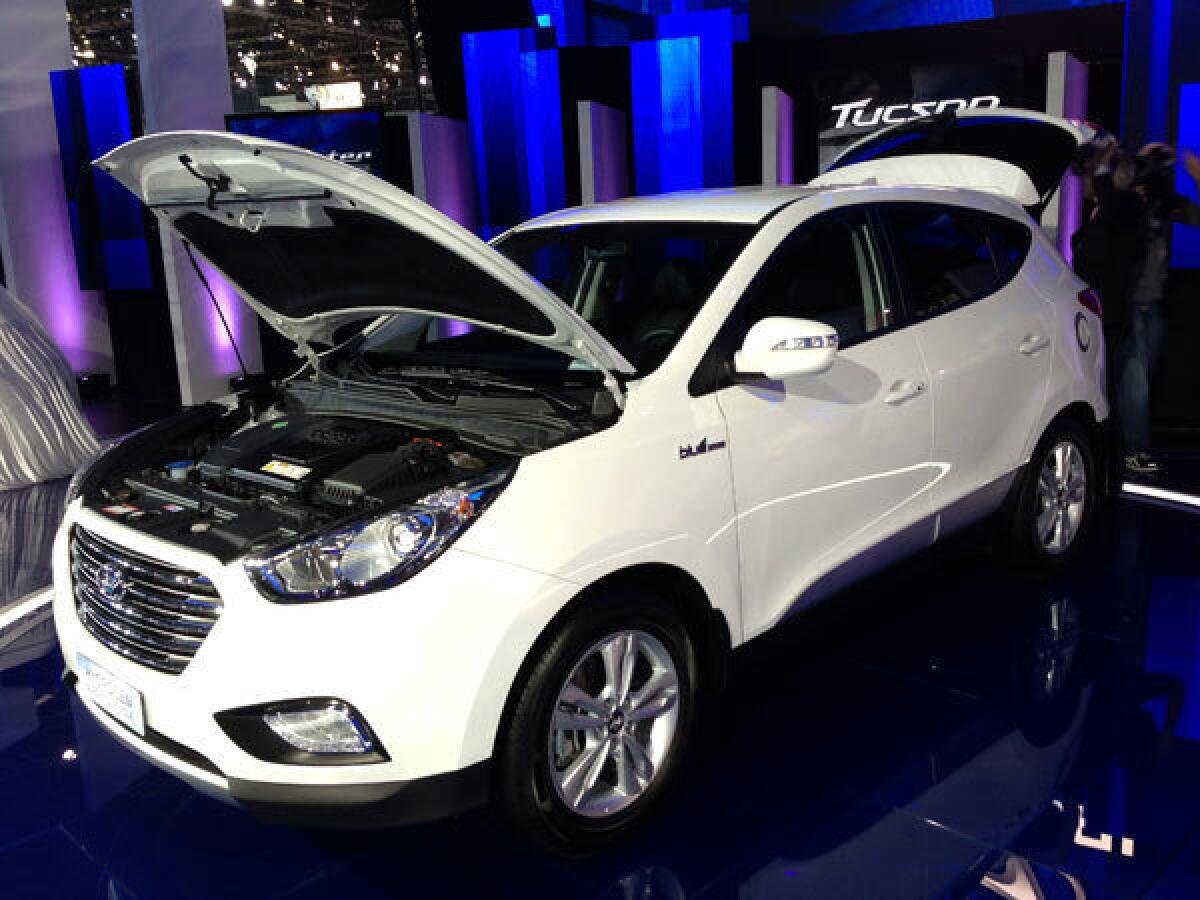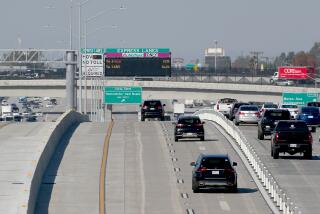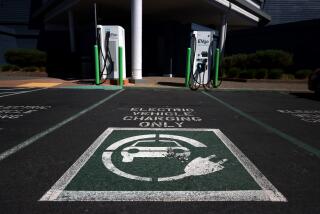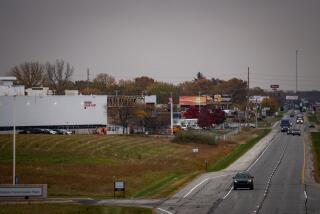L.A. Auto Show: Hyundai debuts new Tucson

Hyundai unveiled its new Tucson hydrogen fuel-cell crossover at the L.A. Auto Show on Wednesday, a vehicle that will be the first mass-market hydrogen-powered car to go on sale in the U.S. when it hits showrooms in February.
The South Korean automaker plans to offer the car on a $499 a month, 36-month lease with a $2,999 down payment. The lease will include fuel, available now at just a handful of stations in Southern California, maintenance and service, said John Krafcik, chief executive of Hyundai Motor America. The car will be sold first in Southern California and rolled out to other markets as the hydrogen fueling infrastructure grows.
Additionally, those leasing the Tucson are expected to get a $2,500 state of California rebate available for zero-emission vehicles.
PHOTOS: L.A. Auto Show model debuts
The five-seater looks almost identical to the gasoline model of the Tucson and will be built on the same South Korean assembly line with its sibling.
The car uses a fuel cell that converts hydrogen to electricity to power an electric motor to power the vehicle. It will have a range of about 300 miles, about four times that of a battery-powered electric car, and takes about five minutes to fuel.
“The superior range and fast-fill refueling speed of our Tucson fuel-cell vehicle contrast with the lower range and slow-charge characteristics of competing battery electric vehicles,” Krafcik said. “We think fuel-cell technology will increase the adoption rate of zero-emission vehicles, and we’ll all share the environmental benefits.”
FULL COVERAGE: L.A. Auto Show 2013
But not all in the auto industry are enamored with the hydrogen drive trains.
Jonathan Browning, chief executive of Volkswagen Group of America, said VW is pursuing electric and hybrid technology because it’s easier for consumers to find electrical sockets to charge their cars than it is to locate hydrogen stations.
California is spending as much as $20 million a year to help bring the number of fueling stations up to 100 within the next five years or so, according to the California Fuel Cell Partnership. There should be 28 hydrogen stations spread across California’s metropolitan areas by 2015.
Elon Musk, chief executive of electric car company Tesla Motors Inc., also believes that hydrogen will never become a practical automotive fuel.
But others are more upbeat.
Hyundai, Toyota and Honda all plan to be selling fuel-cell vehicles in the U.S. by 2015. A second generation of such cars will reach the market five years later, said Byron McCormick, a former General Motors executive who is on the board of directors of ACAL Energy.
“Fuel-cell cars will become smaller and cheaper,” slicing their cost to no more than their gasoline equivalents and making them “practical for day-to-day life,” he said. “That’s the golden bullet for automakers, and it plugs the gap that electric vehicles have failed to fill.”







